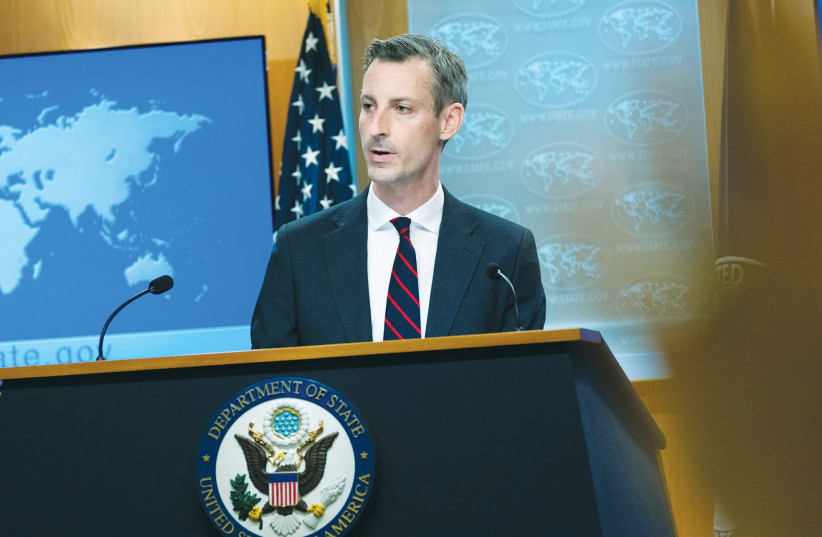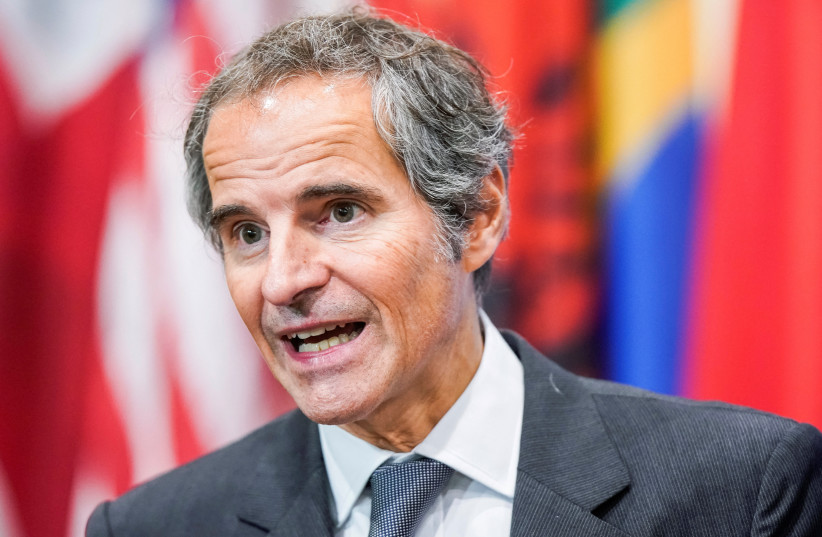The Iran deal is dead.
US President Joe Biden said so himself recently when he thought he was not being recorded.
Statement after statement from US State Department officials for the last few months, and again on Monday, have been progressively hard-hitting on the Islamic Republic and have downplayed any prospect of returning to negotiations in the near term.
So why is anyone even talking about the deal anymore?
Why is Prime Minister Benjamin Netanyahu practically chomping at the bit to fight with the Biden administration, in public, over something that is dead?

Why are the Iranians themselves putting out a steady stream of statements about negotiations and their positions as if talks were still ongoing?
Then there’s the question of what came out of an International Atomic Energy Agency meeting in Tehran in December.
Why is Netanyahu so concerned?
All of these questions are interconnected.
Netanyahu is talking about the Iranian issue for at least two reasons.
First, it is the issue that helped define him as “Mr. Security” and helped get him repeatedly elected and reelected. Second, he is genuinely concerned.
The Iranians continue to talk about the negotiations either because they still really want a deal, or because they want to avoid major negative economic or military consequences from the ongoing standoff. In the meantime, they continue to build up uranium for a potential nuclear arsenal. (They already have enough uranium for four nuclear bombs should they decide to weaponize the material.)
The outcome of the IAEA meeting in Iran, or rather the lack of any outcome, also provides significant hints.
Until now, such publicized meetings in Tehran often saw IAEA chief Rafael Grossi in attendance and were followed with positive joint statements to create goodwill and positive momentum for negotiations.
Grossi did not bother attending December’s meeting, sending lower-level officials instead. The Islamic Republic made its own statements about positive meetings, but the IAEA broadcast a deafening silence.

There has also been zero follow-up about future meetings at higher levels, which would usually come after such a major visit.
Along with recent tough statements from the US and England declaring the Islamic Revolutionary Guard Corps a terrorist group, the IAEA’s frosty dealings with Iran signal that the West is falling in line to pressure and isolate Iran, first with public diplomacy, and possibly later with a global sanctions snapback and other punitive measures.
The US would return to the deal
And yet, the US State Department statement on Monday emphasized that the Biden administration would still jump back into the 2015 Iran nuclear deal if only the ayatollahs would accept a return to the deal without too many new concessions.
The Jerusalem Post has learned that this attitude has top Israeli defense officials nervous that at almost any moment, if Iran allows the IAEA probes against it to stay open, even without providing full answers, Washington will dive back into the Joint Comprehensive Plan of Action, as the nuclear deal is officially known.
Some top officials have even implied to the Post that one reason there is no urgency by defense officials to attack Iran to stop it from weaponizing its uranium is the assumption that the US will eventually rejoin the deal. Paradoxically, while this is not what many defense officials want, they do recognize that it would likely push off any need for a preemptive strike by Israel by at least a few years.
This is also where Netanyahu is now.
For him, it does not matter that the US is mad at Tehran over giving drones to Russia to attack Ukraine, or because it is torturing or killing hundreds of Iranian protesters.
Netanyahu has been following this issue for decades. He wants to make sure that even if the issues of Ukraine, the Iranian protesters and the IAEA go away, there will still not be a deal.
Some would say he is worried for nothing as Iran’s failure to cut a deal with the Biden administration – despite significant concessions toward it regarding advanced centrifuges and enrichment times – have made it clear that the Islamic Republic simply does not want a deal.
In March, the IAEA Board of Governors will meet again. If they send the issue of Iranian nuclear violations to the UN Security Council, the ayatollahs would become subject to a new level of pressure.
There is also a possibility that Iran may be waiting to sign a deal until closer to the US 2024 elections. In that case, it would not need to implement any concessions until it knows who the next US president will be.
March is the next point at which the world will get to see whether Netanyahu’s concerns about a return to the JCPOA are imaginary or valid.
